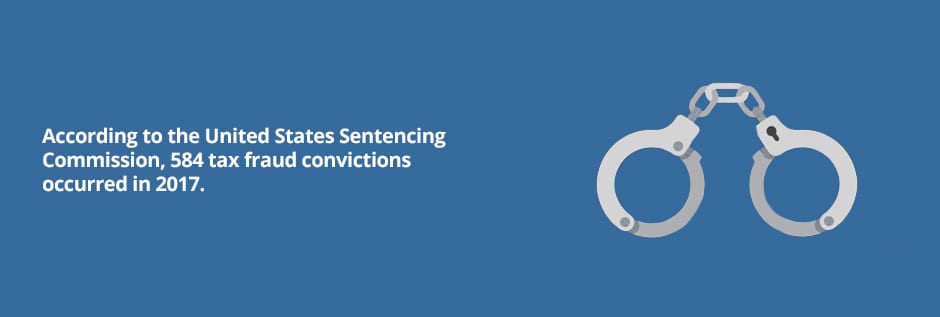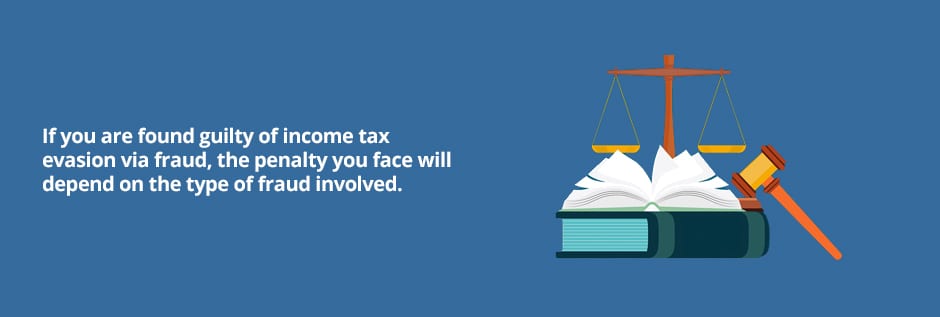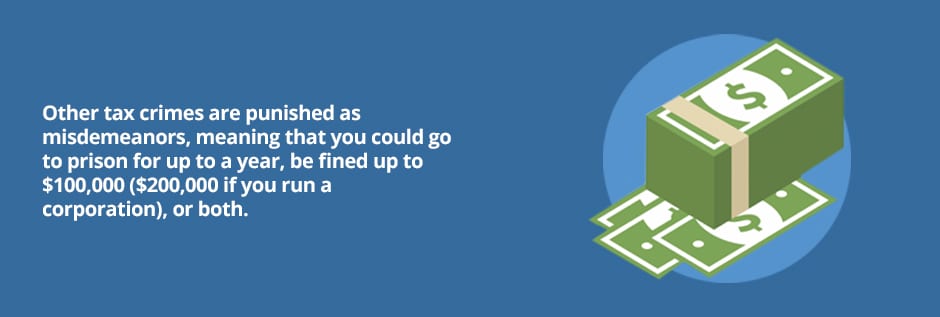One of the most common questions we receive is, “Can you go to jail for not paying taxes?’” While jail is not the default consequence for unpaid taxes, it is possible. Most famously, on October 17, 1931, Judge James H. Wilkerson sentenced Chicago gangster Al Capone to 11 years in federal prison for income tax evasion. The penalty was unusually severe because Capone was really being punished for turning Prohibition-era Chicago into a war zone during the 1920s. Unable to convict him of murder, the authorities worked with the IRS to use the U.S. tax laws to put him away instead.
Since then, there have been other infamous cases in which celebrities have been sentenced to jail and ordered to pay restitution. For instance, Mike Sorrentino of Jersey Shore fame was sentenced to eight months for tax crimes. But how likely is this scenario? Will you go to jail for simply having tax debt? Let’s dive in.
Key Takeaways
-
Failure to pay taxes can lead to significant financial penalties and interest. Still, taxpayers are generally not jailed for having no money unless there is evidence of willful tax evasion.
-
The Internal Revenue Service offers multiple solutions for taxpayers to manage their tax debts, including payment plans, Offers in Compromise, currently not collectible status for severe hardship cases, and penalty abatement for reasonable cause.
-
Tax evasion and fraud are federal crimes that can result in severe penalties, including fines and imprisonment, with the justice system requiring proof beyond a reasonable doubt for a conviction of tax evasion.
The Consequences of Unpaid Taxes

Failure to pay your taxes can have serious consequences. The Internal Revenue Service imposes penalties on unpaid taxes, which increase monthly by up to 25% of the owed amount. These penalties can be reduced during an approved payment plan, but that’s not all. Interest is charged on these unpaid taxes and penalties, adding to your total debt until fully paid.
The IRS doesn’t stop at just penalties and interest. To collect on income tax debts, the IRS can levy assets such as:
-
wages
-
bank accounts
-
Social Security benefits
-
retirement income
-
and for businesses, their accounts receivable
The IRS can take money directly from your paycheck or bank account to settle your tax debts.
Federal Penalties for Tax Fraud

But what about jail time? There are a myriad of tax laws that, if broken, can lead to prison. Let’s discuss a few.
Under Internal Revenue Code section 7203, it is a crime not to pay your taxes. The Government must prove that you willfully failed to pay the tax. This is a misdemeanor crime, and it’s rarely charged.
More commonly (but still rare), the Government could charge you with tax evasion under section 7201 for evading payment, and you could be sentenced to five years in prison. The Government could also charge you under section 7212(a) for tax obstruction.
In addition, if you fail to pay payroll or employment taxes, separate charges could be brought. Section 7202 makes it a crime for employers to fail to withhold or turnover employment taxes, specifically, trust fund taxes. A conviction under this statute can lead to five years of prison time.
While these types of cases are rare, they do happen. More commonly, people are charged for failing to file their tax returns or for filing false tax returns. Regardless, to mitigate any risk of criminal prosecution and prison time, you want to resolve your tax issues proactively.

The IRS’s Approach to Tax Collection
The IRS begins collecting taxes by sending a bill to the taxpayer. This bill includes the amount of tax owed, penalties, and accrued interest. Taking these notices seriously is important, as ignoring them can lead to more severe consequences.
The IRS offers several payment plans for taxpayers, no matter the size of the liability. In the past, we’ve put a client who owed $100,000,000 in taxes on a payment plan. These plans provide a structured way for taxpayers to pay off their tax debts gradually.
In certain circumstances, the IRS may accept an Offer in Compromise. This allows financially distressed taxpayers to settle their tax liability for a reduced amount.
The IRS can designate your account as currently non-collectible if you are facing severe hardship. This temporarily halts collection efforts, giving you some breathing room. During this period, you can improve your financial situation to address your tax debts better. Remember that penalties and interest continue to accrue while you are currently non-collectible.
Finally, the IRS may provide a penalty abatement if you present a reasonable cause for failing to meet your tax obligations.
Legal Outcomes for Tax-Related Crimes
While not paying your taxes can lead to financial penalties, committing tax fraud or evasion can have far more serious consequences. Tax evasion is a federal crime under federal law. Tax evasion is a willful attempt to defeat or evade a tax, and you can spend up to five years in prison if the court convicts you.
Most commonly, evasion charges are brought for filing a false return. For instance, you file a return that claims more expenses than you incurred for a particular year, or perhaps you did not include all of the income you made for a specific year. You can also be charged for evasion if you fail to file any return or if you commit acts to avoid the payment of tax. In addition to jail time, you can be ordered to pay restitution and monetary fines.
To secure a conviction for evasion, the Government must prove (1) a substantial tax evaded, (2) willfulness, and (3) an affirmative act in furtherance of the intent. “Substantial” will depend on a court’s interpretation, with some courts outright rejecting that it needs to be substantial.
Avoiding the Pitfalls of Tax Noncompliance
Failing to pay your taxes or engaging in tax fraud can lead to severe consequences and tax liabilities. But how can a taxpayer avoid an IRS criminal investigation or an investigation from another tax authority?
You should file your tax return. If you do, you avoid more common charges that involve failing to file. Ensure you don’t claim false expenses or file false tax returns, which are more likely to lead to charges. Again, it is rare for the Government to bring charges for being unable to pay your income tax, but if you don’t file your tax return in the first place, it could lead to a criminal investigation.
Audits can also lead to referrals for criminal investigation. If you are ever audited, you want to ensure you do not make things worse by lying to the auditor or providing false or fraudulent documentation.
Owing back taxes is no fun, but the IRS offers many repayment options. You can greatly mitigate the risk of criminal prosecution by filing your tax returns, even if you cannot pay. In addition, you avoid the failure to file penalty, which is 5% per month of the income tax owed.
Protecting Your Rights with Professional Help
Navigating the tax system can be complex and daunting, especially when dealing with tax debts or potential legal action from the tax authority. This is where professional help comes in. A tax attorney specializes in legal representation, interpreting tax laws, and advocating in court, making them invaluable for complex legal tax issues.
Unlike CPAs or other tax professionals, tax attorneys are equipped to:
-
Represent clients in tax-related legal proceedings to protect their rights and interests
-
Provide valuable assistance in navigating complex tax issues and legal proceedings
-
Offer protection under the attorney-client privilege.
They are well-versed in the intricacies of tax law and can provide valuable assistance in navigating complex tax issues, legal proceedings, and even IRS criminal investigation matters.
Summary
In conclusion, while not paying your taxes can lead to penalties and interest charges, it’s unlikely (but not impossible) that you will go to jail for simply not paying. The IRS offers various payment plans and other options to help taxpayers settle their tax debts. Avoiding tax noncompliance is crucial, and professional help from tax attorneys can be invaluable in navigating complex tax issues and protecting your rights.
Frequently Asked Questions
Can the IRS put you in jail for not filing taxes?
Yes, the IRS is more likely to pursue charges for not filing a tax return than not paying your taxes. Filing tax returns timely protects you against criminal prosecution and minimizes penalties that the IRS will add to the balance.
What happens if I never pay taxes?
If you never pay taxes, you will accrue interest on the unpaid taxes and face penalties. The IRS can also file tax liens, which secures their interest in property you own.
What was the punishment for not paying taxes?
On the civil side, a taxpayer will face penalties of up to 25% and interest. On the criminal side, it will depend on the severity of the case. The government could bring multiple charges if you have back taxes, and you could face up to five years in prison.
How long can you not file taxes before going to jail?
It depends on the specific facts of the case. You could face criminal charges if you fail to file even a single tax return. The more tax returns that go unfiled, the more likely charges are. In addition, there could be egregious circumstances where even a single year is sufficient.
What is the difference between tax evasion and tax fraud?
Tax fraud is generally used when a person willfully fails to comply with tax law. Tax evasion is a specific federal crime that can be charged. It applies to various cases, including when someone does not file or pay taxes.
Contact an Experienced Tax Attorney
Many IRS investigations start with an audit. If you receive a letter indicating that the government wants to inspect your books and records and you know that your tax return had issues like unreported income or personal expenses presented as business costs, contact an IRS audit attorney immediately.
At Paladini Law, we have worked with many clients who are worried about mistakes or intentional missteps in their income tax reporting. For more information, please contact Paladini Law or call 201-381-4472.





